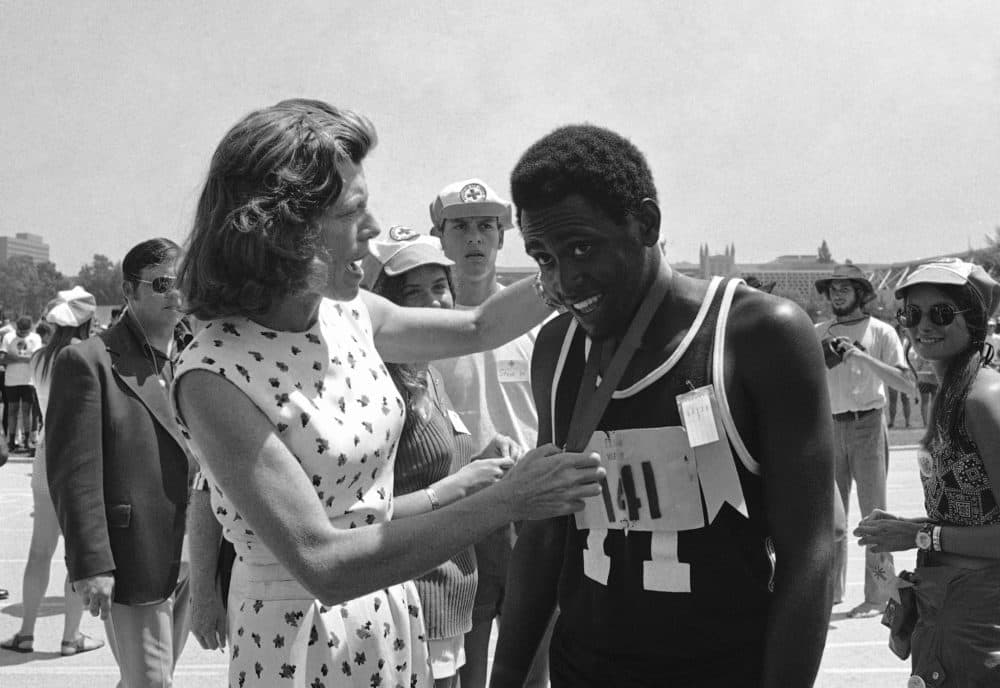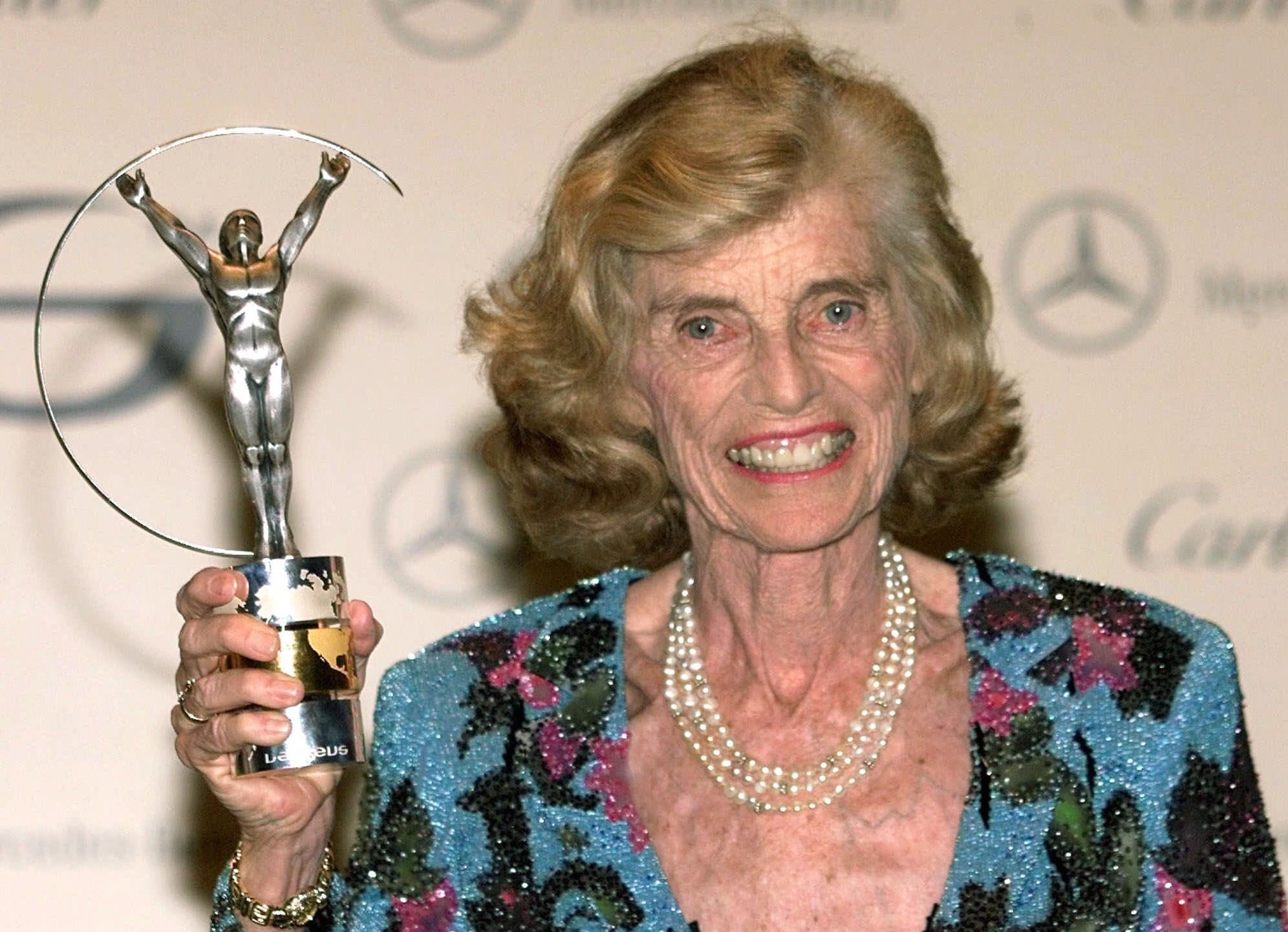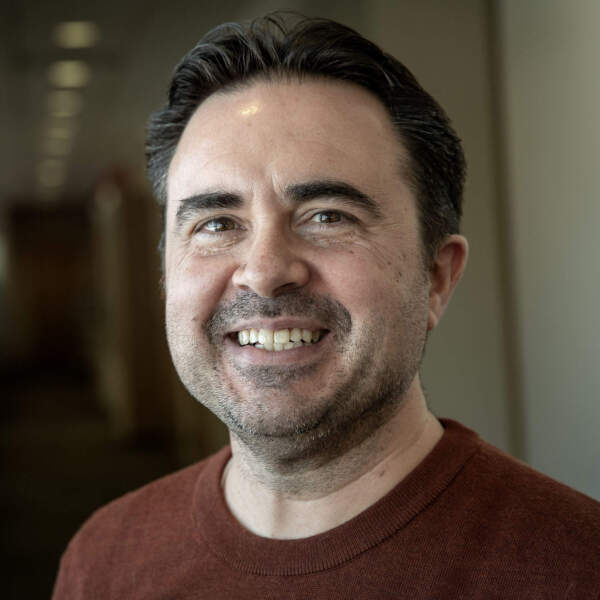Advertisement
Eunice Kennedy Shriver, Founder Of Special Olympics, Remembered On 100th Birthday
Resume
The John F. Kennedy National Historical Site in Brookline will celebrate the 100th anniversary of the birth of Eunice Kennedy Shriver this Saturday with a virtual ceremony celebrating her legacy.
Shriver was born on July 10, 1921 and is best known as the founder of the Special Olympics. The organization was founded 52 years ago in Washington, D.C. and has since spread to dozens of countries nationwide. She also became an advocate for people with intellectual disabilities at a time when they had few rights.
"It's hard to remember this but until 1975 children with intellectual disabilities didn't have a right to a seat in a public school classroom," said Eileen McNamara, author of the biography "Eunice: The Kennedy Who Changed the World."
"That changed because of Eunice Kennedy Shriver."

McNamara said Shriver was motivated by her sister Rosemary, who was born with intellectual disabilities. Her sister was lobotomized and sent to an institution by her father, and kept hidden from most of the family for decades. When she came home, Shriver was the one who cared for her.
"She taught her how to swim, she taught her how to sail, she played tennis with her," McNamara said.
Shriver also became an advocate for prenatal care. She coerced her brother, then-president John F. Kennedy, to convince Congress to fund a prenatal care center at the National Institutes of Health. That center, founded in 1962, is now known as the Eunice Kennedy Shriver National Institute of Child Health and Human Development.
The virtual program Saturday to honor Shriver's legacy will include McNamara, along with Shriver's son and Special Olympics Chairman Timothy Shriver and disability advocates. People interested in attending can register online.
Mark Swartz, president of Friends of the JFK Birthplace, hopes the event will help bring new light to Shriver's legacy.
"What she accomplished in the area of intellectual disabilities and advocacy and inclusion and human rights is extraordinary," Swartz said, "and yet she is a Kennedy that a lot of people frankly have heard very little about."
This segment aired on July 8, 2021.

